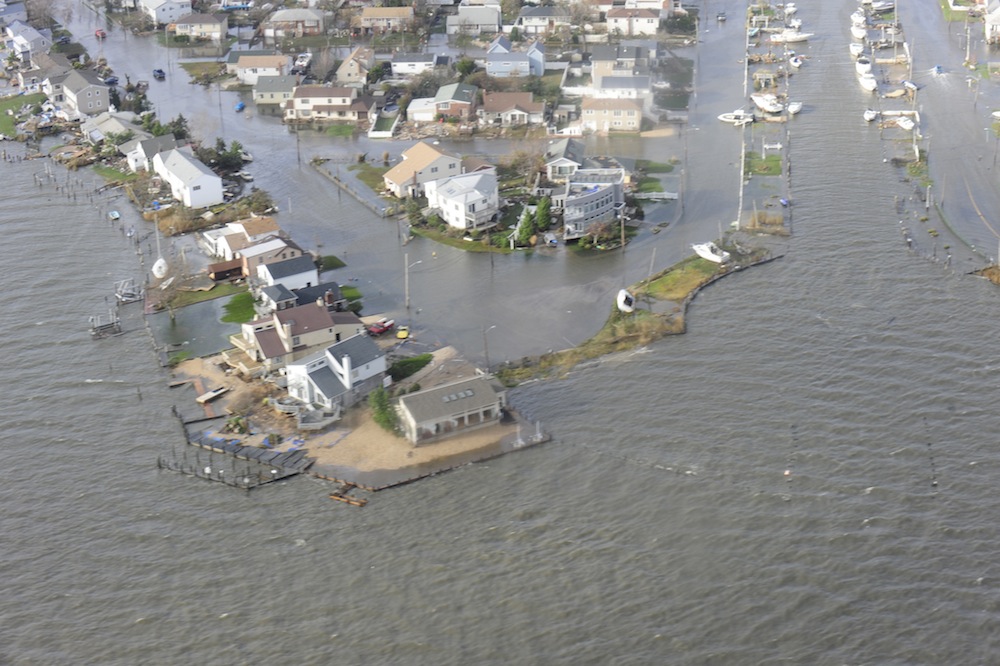Codes and standards concerning emergency backup power and other key resiliency matters should reflect lessons learned from Hurricane Sandy and other recent major storms, says Bhavesh Patel, vice president, global marketing for ASCO Power Technologies.
One standard, the NFPA 110: Standard for Emergency and Standby Power Systems, 2013 edition says, “EPSS (emergency power supply system) equipment should be located above known previous flooding elevations where possible.” And later states, “For natural conditions, EPSS design should consider the ‘100-year storm’ flooding level predicted by the Sea, Lake, and Overland Surges from Hurricanes (SLOSH) models for a Class A hurricane.”
“The qualifiers in the two paragraphs – ‘where possible’ and ‘should consider’ – can dilute the effect of the code if the project specifiers are not strict and careful in determining what ‘possible’ can entail,” Patel writes. “The words ‘where possible’ and ‘should consider’ are not as straightforward in conveying intent as a more emphatic ‘must,’ and leaves the door open for less sense of the need to comply.”
Patel notes that a post-Hurricane Sandy task force has recommended that New York City codes be updated to locate building equipment higher to avoid flood damage, require sewage valves to prevent backflows during flooding, and provide for easy access to backup generator hookups.
Related Stories
| Nov 23, 2011
USGBC launches app lab for LEED certification process
The U.S. Green Building Council has released the App Lab, a searchable catalog of third-party apps that are integrated with LEED data.
| Nov 23, 2011
Document gives advice on stormwater runoff management
The report, “Rooftops to Rivers II,” provides tips on how cities can use smart infrastructure and green building design to minimize pollution from stormwater runoff and other wastewaters.
| Nov 23, 2011
Zoning changes proposed to make New York City buildings greener
New York City will introduce new zoning proposals next month that would make it easier for building owners to add features that will make their properties more sustainable.
| Nov 18, 2011
AGC offers webinar on Davis-Bacon compliance
Webinar to be held in two sessions, Dec. 7 and 8 from 2:00-3:30 p.m. EST.
| Nov 18, 2011
New green construction code may help push LEED standards higher
The International Green Construction Code (IgCC) is expected to set a floor for building standards and may create the opportunity for LEED certifications to push toward higher ceilings.
| Nov 18, 2011
New OSHA fall safety rule could save contractors money on insurance premiums
The new Occupational Safety and Health Administration rule requiring employers operating in the residential construction industry to use the same methods of fall protection that historically have been used in the commercial construction industry could save them money.
| Nov 18, 2011
Some believe new Austin building code will help mom and pop shops
Austin, Texas has proposed building codes that require wider sidewalks and call for buildings to be closer to sidewalks along a 3.5-mile stretch of highway.
| Nov 11, 2011
AIA: Engineered Brick + Masonry for Commercial Buildings
Earn 1.0 AIA/CES learning units by studying this article and successfully completing the online exam.
| Nov 10, 2011
WaterSense standard for weather-based irrigation controllers unveiled
The U.S. Environmental Protection Agency’s (EPA) WaterSense program has released a final specification for weather-based irrigation controllers—the first outdoor product category eligible to earn the WaterSense label.
| Nov 10, 2011
Advocate seeks noise reduction measures in California building codes
A former chief building inspector for San Francisco wants to enact building codes that would limit noise levels in restaurants and other spaces open to the public.















